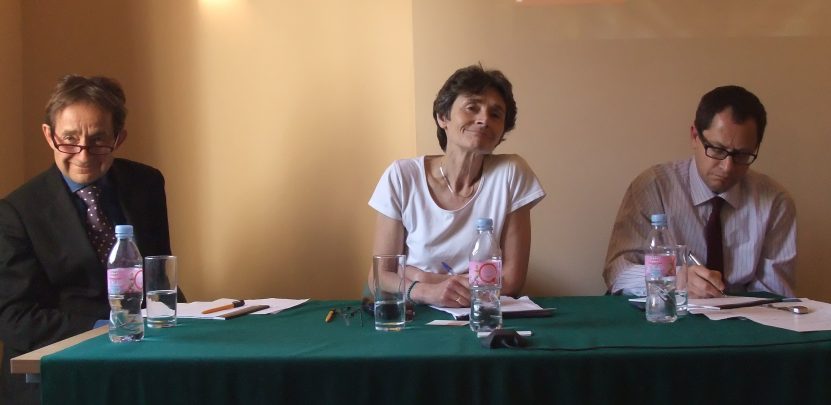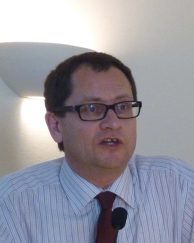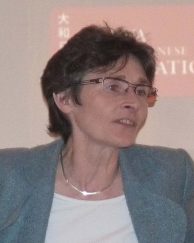 Seminar Series 2011
Seminar Series 2011Tuesday 24 May 2011
6:00pm – 7:45pm
The Future of Education in the UK and Japan
Drinks reception from 8:45pm
Daiwa Foundation Japan House
Organised by the Daiwa Anglo-Japanese Foundation
Summary
This fourth seminar in the 2011 series, Uncertain Futures: The Individual, Society and the State in the UK and Japan, considered the role of education in society and the pressures of adapting education policy to changing needs. The ebb and flow of educational reforms in past decades has seen British and Japanese models held up for scrutiny or emulation. Individualism, internationalization and the information age have, at different times, informed debates on ideology and practice. The discussion focused upon core values in education and aspirations for children, families and schools in the UK and Japan.
The chair, Baroness Morris, prefaced the presentations by wondering whether education leads to shifts in society or whether it reacts to societal change. Judging that education encompasses both aspects, she went on to say that education is about individual aspiration. Post-war, the notion of what education can do for the nation also became important and, in the last ten years, what education can provide globally has also become a feature. Schools and universities have always managed to deliver what has been expected of them. Demands have steadily increased, however, and continuing societal changes will impact, inevitably, on further educational and societal pressures.
The first speaker, Professor Roger Goodman, reflected on his entire experience of comparing the Japanese and British education systems since 1982. With the tide of economic change, UK perceptions of Japan have fluctuated over the decades. It is striking that structures and policy in Japan have changed more over the last 25 years than practices, Goodman pointed out, reflecting shifting economics and the evolution of what we consider good and bad.
From the 1980s to the mid-1990s, Japan was at the pinnacle of the global educational league tables, per child education was quite cheap and illiterate or innumerate students simply did not exist. Added to this was the fact that a much higher ratio of students entered university than in the UK, all of which went into making Japan an interesting model from which much could be learnt.
The key elements bolstering the belief that Japan in the 1980s could provide lessons and which explained the effectiveness of the Japanese education system were its emphasis on cultural homogeneity and harmony, the group ethos, duty, dependence, centralisation and meritocracy.
With the bursting of the Japanese economic bubble in 1989 and the ensuing recession, Japan, in a reversal of fortunes, increasingly looked to the UK from the mid-1990s onwards. The UK was achieving outstanding success in the Higher Education international league tables at a time when Japanese universities were performing badly and Japan needed to revive its export economy and increase levels of creativity. Initiating a process of deregulation, albeit in a highly regulated manner, Japanese educationalists also began considering issues of parental choice and market forces in the sphere of education.
Reviewing the literature of the last ten years to glean why the Japanese education system is in decline, Goodman commented that, paradoxically, exactly the same reasons used to account for its success in the 1980s were now being blamed for its demise, illustrating the fact that educational systems, enmeshed as they are in a social, political, historical and cultural context, are never static. In an about turn, the clamour became one for heterogeneity, an entrepreneurial spirit, and independence rather than an adherence to homogeneity, harmony and the group.
Turning to the question of practice, Goodman commented on the role of teachers in Japan as being broader and extending further than is the case in Britain. Police will contact teachers rather than parents in the case of any trouble caused by a student and homeroom teachers have a statutory obligation to visit students at home. Teachers in Japan are also accorded a higher status than other professionals with a similar educational background. The Japanese word for teacher, sensei, is in itself a term of respect. Teachers in Japan view children as being able to learn anything given the necessary effort and resist categorising students as being musical, artistic or otherwise. All are imbued with maximum ability and teachers have high expectations of them.
Are our educational systems really changing, wondered Goodman. In citing William Cummings, professor of international education and international affairs at George Washington University, he concluded by saying that they had altered very little despite socio-political change. England’s ideal still seems to be that of raising ‘educated gentlemen’ in many respects while Japan’s aims for its school leavers is that they will make a ‘competent contribution to the group’.
The second speaker, Dr Anthony Seldon, began by concurring with Goodman. When he embarked on his career, he noted, the Japanese education system was widely aspired to, whereas no one seems to be talking about it at the moment. There is a tremendous lack of awareness about Japan despite the fact that Japan is a deeply important country he commented.
Governments, higher education and employers are the top-down drivers who are determining the objectives of schooling, regretted Seldon. Governments, he ventured, don’t understand education. They consider it an end and are eager to see their schools at the top of the international league tables, overlooking the fact that those who do best in a test aren’t necessarily the best educated. Rather than a top-down approach, Seldon proposed looking, instead, at what each child needs in order to develop.
While in favour of the status accorded teachers in Japan, the importance given to the group, and the high student aspirations, Seldon was critical of teacher over-involvement. This tendency of Japanese teachers could lead to atrophy and prevent children from becoming independent and autonomous, he warned. Independence is important in empowering students but also teachers, remarked Seldon, as once accorded more trust, teachers and students will become more engaged as a result.
Seldon praised some of the truly exciting schools in the United States, which are international in thinking as well as endowed with a breadth of imagination. British schools would benefit by learning from them as well as by embracing the digital revolution. Libraries need to be living spaces and our educational systems need to be made with children in mind commented Seldon.
While the UK state sector has improved considerably since 1997, in particular with the establishment of the forward-thinking state academies, the UK’s independent sector, comprising 7% of school students, has become complacent and fallen in the hands of dull, inward-looking heads in many cases, bemoaned Seldon.
In order to best nurture students, educational systems should view education as being both holistic and academic, while valuing students’ logical, linguistic, kinaesthetic, interpersonal and moral aptitudes amongst others. It will be fascinating to see what will happen in the next five years he concluded.
Baroness Morris agreed that the connection between well-being and achievement must be noted and lamented the fact that the language associated with well-being is, unfairly, often regarded as soppy and lacking in substance. While she felt teacher status had improved in the UK as the wider society had come to understand what a difficult profession it is, she remarked that more disrespect, however, is being displayed by a smaller number of parents.
The questions and answers following the talks were varied and lively and covered themes such as the genesis of the independent education sector in Japan, the fact that the better schools in Japan tend to be state controlled, that while Japanese schools are heavily subsidised there is minimal investment in capital buildings, that 40% of universities in Japan are currently below quota and face the possibility of bankruptcy or amalgamation; that in Japan all children learn music and how to draw to a high standard as these subjects are given the same weight that numeracy and literacy are in the UK and that while A Levels have considerably changed in format they have kept the same label; while students still arrive at university well prepared they now do so in a different way with which not all academics are familiar.
About the contributors

Dr Anthony Seldon
Anthony Seldon is a political historian and commentator on British political leadership as well as on education and contemporary Britain. He is also Master of Wellington College, one of Britain’s most famous and historic independent schools and was co-founder and first Director of the Institute of Contemporary British History. Dr Seldon is author or editor of some 25 books, including Brown at 10, a biography of Gordon Brown (2010), ‘Trust: How We Lost It and How to Get It Back’ (2009), ‘Blair’s Britain, 1994-2007’ and ‘Blair Unbound, 2001-2007’ (with Peter Snowdon)(2007). He has honorary doctorates from the Universities of Brighton and Richmond and in 2007 was given a Chair at the College of Teachers as Professor of Education. He is a fellow of the Royal Historical Society and the Royal Society of Arts. Dr Seldon is regarded as one of the country’s most high profile independent school headmasters and appears regularly on television and radio and in the press, and writes for several national newspapers. His views on education have regularly been sought by both government and political parties.

Professor Roger Goodman
Roger Goodman is Nissan Professor of Modern Japanese Studies at the University of Oxford where he has been Head of the Social Sciences Division since 2008. His publications include ‘Japan’s International Youth: The Emergence of a New Class of Schoolchildren’ (1990) and ‘Children of the Japanese State: The Changing Role of Child Protection Institutions in Contemporary Japan’ (2000) both of which have also been published in Japanese versions. He has also edited or co-edited a further eleven books including ‘The East Asian Welfare Model: Welfare Orientalism and the State’ (1998); ‘Family and Social Policy in Japan’ (2002); ‘Can the Japanese Change their Education System?’ (2002); ‘Global Japan: The Experience of Japan’s New Immigrant and Overseas Communities’ (2003), ‘The ‘Big Bang’ in Japanese Higher Education: The 2004 Reforms and the Dynamics of Change’ (2005), ‘Ageing in Asia: Asia’s Position in the New Global Demography’ (2007) and ‘A Sociology of Japanese Youth Problems: From Returnees to NEETs’ (forthcoming, 2011). His main research interests are in the education and social welfare systems of modern Japan.

Baroness Estelle Morris (Chair)
The Baroness Morris of Yardley started her career in education as a teacher in an inner city multi-racial comprehensive school where she taught for 18 years. In 1992 she entered Parliament and in 2001 became the Secretary of State for Education and Skills. She followed this with 2 years as a Minister at the Department of Culture Media and Sport and left Parliament in 2005. Since then she has combined a career that includes senior posts both in education and the arts as well as being a member of the House of Lords. Her roles in education have allowed her to see the education landscape from classroom teacher to senior policy maker and it is this breadth of experience that is now reflected in her comments and analysis of education. Amongst other posts she now works at the Institute of Effective Education at the University of York which aims to transform the relationship between education research and practice so that policy making and teaching can become more evidence based. She is a regular contributor to Guardian Education.